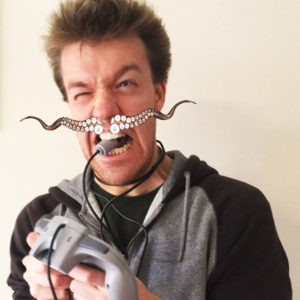
It’s tricky to get kids to take an interest in the ever delightful and ever infuriating world of programming. Unless it’s framed in a particular way, it’s just too difficult to break down code line by line and show how it all pieces together, but CoderDojo goes about it a bit differently. Instead of asking kids to program flag designs, everything is framed in the context of a project of their choosing (be it games or otherwise), which is a lot more interesting than your typical Java lesson. Karen Wellington is Program Manager for CoderDojo, so it only seems fitting to ask her what CoderDojo is all about!
For the uninitiated, what is CoderDojo?
CoderDojo is an open source social education movement oriented around fun, free and social coding clubs for young people aged 7-17.
CoderDojo WA is the Western Australian node of this open source network. Anyone can start their own club. Visit https://coderdojo.com/start-a-dojo/ to join in.
How has the reaction been to these workshops?
The focus of CoderDojo is not on workshops, but on the provision of friendly, welcoming and supportive environments in which young people can progress their learning of code through study, individual or team project work, all with the support of Mentors.

… And how was the reaction at PGF?
Many parents were interested to see how their children could become creators of games and not just consumers.
Obviously, you don’t release games yourselves, but has anything seriously rad come out of these sessions?
Lots of rad games have been created by Ninjas during the sessions.
I saw some of the software these kids are using, and it didn’t look like straight code, so what techniques do you guys use to break kids into coding?
Scratch MIT is a popular learning platform. Created by Harvard MIT, Scratch introduces young people to the concepts of code by inviting them to click blocks together in order to create dynamic digital art, animations and games.

Integrating more computer science into schools seems to be gaining traction. How important do you think this kind of exposure to the behind-the-scenes of games is?
As young people LOVE games, there is a lot of appeal in creating their own. Game-creation is the first step in learning computer programming for the majority of young people we have seen come through CoderDojo.
How applicable are these skills to things outside games?
Not all Ninjas who take part in CoderDojo and create their own games, go on to become computer programmers. However, they can pick up a basic understanding about how computers work, and an awareness of what software is made from. As well as building basic digital literacy skills like online searching, using a mouse and keyboard and navigating different operating systems, the experience of creating games empowers Ninjas to become creators rather than just consumers of technology.
Do you see games taking a more prominent role in how we teach our kids in the future?
Definitely. I already see it happening, with some innovative teachers using games like Minecraft to engage students with different subject areas.

Do you see gamification as a valuable asset or just another buzz-term?
Gamification has been around for a long time and will be around forever. What we understand about human motivation and drive indicates that we certainly have a preference for activity which we find to be ‘fun’.
Anyone who understands some basic principles of gamification can improve their work and see better results no matter what they do.
For anyone who’s interested, where can people find out more about CoderDojo?
Visit the international CoderDojo website here: www.coderdojo.com or the Western Australian website here: www.coderdojowa.org.au











